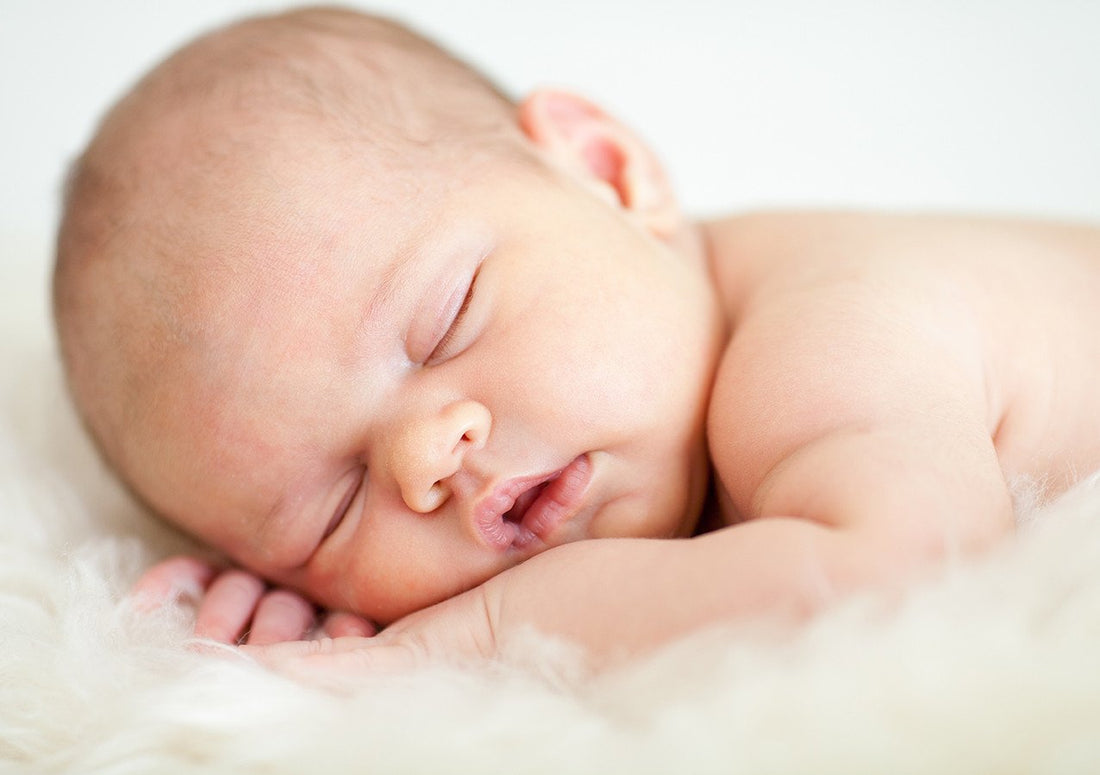
Newborn Baby Skin Care
Share
Newborn skin care is as important as keeping your baby warm and nourished. First of all, newborn skin is very delicate, and as the biggest organ of the body it affects your baby's immune system. You definitely don't want any chemicals, fragrances, and dyes to cause your precious one's skin irritation, dryness, chafing and rashes. Here are tips to protect your baby's skin.
Natural Baby Skin Care - or less is more
Bathing no more than 3 times a week. Too-frequent bathing removes the natural oils that protect the skin and leaves it vulnerable, so it reacts to any allergen and triggering a reaction like eczema. A sponge bath with a mild cleanser two or three times a week will keep your baby safely clean.
Don't use baby products containing harsh chemicals. Their immune system is still in developing process. It's especially important to protect your baby's immune system (read from irritating allergens), if you have skin problems, allergies, or asthma in your family history.
Always wash baby's clothing before it's worn. Choose only gentle baby laundry detergents that are fragrance and dye free. Wash your baby's clothes, bedding, and blankets separately from the rest of the family laundry.
Most skin problems - Eczema and Diaper Rash
Usually these problems don't develop for the first month or two but it's essential to understand the difference between them to treat them right.
Eczema (or atopic dermatitis) appears as patches of red, itchy and dry skin mostly on baby's face and scalp, elbows and behind the knees. Eczema is caused when the body makes too few fatty cells or loses them because of too frequent bathing. These fatty cells act as a barrier protection for the skin. If you don't have enough of them, the skin will lose water and become very dry. Another big factor in whether a baby gets eczema is heredity. If mom or dad have eczema, most likely infant will develop it too. Defects in the skin barrier could be another factor. They allow the moisture out and the germs in.
How to prevent dry, irritated skin and eczema:
- Try less bathing to allow baby's skin to retain natural oils
- Don't overuse baby skin products, especially the ones with harsh chemicals or fragrances that could cause further irritation
- Make sure your baby wears only soft clothing
Meanwhile, diaper rash is caused by irritating wetness of a soiled diaper. It can also develop when baby's skin is not properly dried after bath. Sometimes, bacteria or yeast infection will cause diaper rash.
Rash can be an allergic reaction as well. Rashes under diapers can actually be an allergy to dyes in the diapers themselves that can cause this reaction. Use dye-free or cloth diapers to prevent outbreaks.
How to prevent diaper rash:
- Frequently check diapers and change them immediately when wet or soiled
- Wash the diaper area with gentle fragrance-free cleanser without rubbing. After that let your baby bum air-dry before putting on a fresh diaper
- Never use baby wipes containing alcohol or perfume, they can further irritate and dry the skin
- If using baby powder, make sure to keep it away from your little one's face. The talc or cornstarch in the powder can cause breathing issues
Whenever it comes to treating eczema or diaper rash, use something which doesn't contain hormones (such as cortisone or hydrocortisone). They have terrible side effects and the National Eczema Association forbid them to be used on anyone under the age of 2 years.
All medicines may cause side effects, but many people have no, or minor, side effects. Most COMMON side effects using hydrocortisone cream: Burning, dryness, itching, or mild skin irritation.
Seek medical attention right away if any of these SEVERE side effects occur:
Severe allergic reactions (rash; hives; itching; difficulty breathing; tightness in the chest; swelling of the mouth, face, lips, or tongue); acne-like rash; excessive hair growth; inflamed hair follicles; inflammation around the mouth; itching, burning, pain, redness, or swelling of the skin not present before using hydrocortisone cream; muscle weakness; symptoms of high blood sugar (eg, increased thirst, hunger, or urination; confusion; unusual drowsiness; flushing; rapid breathing); thinning, softening, or discoloration of the skin; unusual weight gain, especially in the face. (http://www.drugs.com/cdi/hydrocortisone-cream.html)
Soothing and Relaxing Touch
By stimulating the senses by touching and massaging, you are also nurturing your baby's ability to learn, think, love and grow. Giving your newborn a massage is a way to convey your love and affection. Some research even show that a touch boosts immunity and helps fight disease. Also, after massage babies are calmer, sleep better and cry less.
There is no special method to massage a baby. What you need is a warm room, soft blanket, a bit of baby massage oil or gentle lotion. During the massage try to make eye contact, talk to your baby or sing softly. Promise, you both will enjoy it!